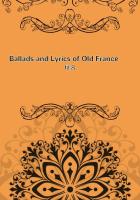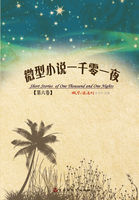Hence comes the great difference between the American "lead" or opening sentence of the article, and the English method of commencement. In the American paper the idea is that the reader is so busy that he must first be offered the news in one gulp. After that if he likes it he can go on and eat some more of it. So the opening sentence must give the whole thing. Thus, suppose that a leading member of the United States Congress has committed suicide. This is the way in which the American reporter deals with it.
"Seated in his room at the Grand Hotel with his carpet slippers on his feet and his body wrapped in a blue dressing-gown with pink insertions, after writing a letter of farewell to his wife and emptying a bottle of Scotch whisky in which he exonerated her from all culpability in his death, Congressman Ahasuerus P. Tigg was found by night-watchman, Henry T. Smith, while making his rounds as usual with four bullets in his stomach."
Now let us suppose that a leading member of the House of Commons in England had done the same thing. Here is the way it would be written up in a first-class London newspaper.
The heading would be HOME AND GENERAL INTELLIGENCE. That is inserted so as to keep the reader soothed and quiet and is no doubt thought better than the American heading BUGHOUSE CONGRESSMAN BLOWS OUT
BRAINS IN HOTEL. After the heading HOME AND GENERAL INTELLIGENCE
the English paper runs the subheading INCIDENT AT THE GRAND HOTEL.
The reader still doesn't know what happened; he isn't meant to.
Then the article begins like this:
"The Grand Hotel, which is situated at the corner of Millbank and Victoria Streets, was the scene last night of a distressing incident."
"What is it?" thinks the reader. "The hotel itself, which is an old Georgian structure dating probably from about 1750, is a quiet establishment, its clientele mainly drawn from business men in the cattle-droving and distillery business from South Wales."
"What happened?" thinks the reader.
"Its cuisine has long been famous for the excellence of its boiled shrimps."
"What happened?"
"While the hotel itself is also known as the meeting place of the Surbiton Harmonic Society and other associations."
"What happened?"
"Among the more prominent of the guests of the hotel has been numbered during the present Parliamentary session Mr. Llewylln Ap.
Jones, M.P., for South Llanfydd. Mr. Jones apparently came to his room last night at about ten P.M., and put on his carpet slippers and his blue dressing gown. He then seems to have gone to the cupboard and taken from it a whisky bottle which however proved to be empty. The unhappy gentleman then apparently went to bed . . ."
At that point the American reader probably stops reading, thinking that he has heard it all. The unhappy man found that the bottle was empty and went to bed: very natural: and the affair very properly called a "distressing incident": quite right. But the trained English reader would know that there was more to come and that the air of quiet was only assumed, and he would read on and on until at last the tragic interest heightened, the four shots were fired, with a good long pause after each for discussion of the path of the bullet through Mr. Ap. Jones.
I am not saying that either the American way or the British way is the better. They are just two different ways, that's all. But the result is that anybody from the United States or Canada reading the English papers gets the impression that nothing is happening:
and an English reader of our newspapers with us gets the idea that the whole place is in a tumult.
When I was in London I used always, in glancing at the morning papers, to get a first impression that the whole world was almost asleep. There was, for example, a heading called INDIAN INTELLIGENCE
that showed, on close examination, that two thousand Parsees had died of the blue plague, that a powder boat had blown up at Bombay, that some one had thrown a couple of bombs at one of the provincial governors, and that four thousand agitators had been sentenced to twenty years hard labour each. But the whole thing was just called "Indian Intelligence." Similarly, there was a little item called, "Our Chinese Correspondent." That one explained ten lines down, in very small type, that a hundred thousand Chinese had been drowned in a flood. And there was another little item labelled "Foreign Gossip,"
under which was mentioned that the Pope was dead, and that the President of Paraguay had been assassinated.
In short, I got the impression that I was living in an easy drowsy world, as no doubt the editor meant me to. It was only when the Montreal Star arrived by post that I felt that the world was still revolving pretty rapidly on its axis and that there was still something doing.
As with the world news so it is with the minor events of ordinary life,--birth, death, marriage, accidents, crime. Let me give an illustration. Suppose that in a suburb of London a housemaid has endeavoured to poison her employer's family by putting a drug in the coffee. Now on our side of the water we should write that little incident up in a way to give it life, and put headings over it that would capture the reader's attention in a minute. We should begin it thus:
PRETTY PARLOR MAID
DEALS DEATH-DRINK
TO CLUBMAN'S FAMILY















